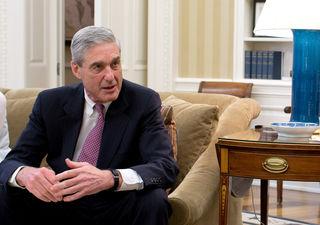Education
Why the Mueller Report Won't Change Minds
Mueller, Schmueller: The report will not lead us to consensus perceptions.
Posted March 26, 2019

By David Barker, Ph.D., and Morgan Marietta, Ph.D.
We received the summary of the long-awaited report on one of our greatest factual disputes: did Donald Trump collude with the Russians? Many Americans have near certain—perhaps too certain—views on this question. But wasn’t the Mueller Report supposed to settle it? Before the Report came out, we would have predicted it would settle next to nothing. After seeing the summary released by the Attorney General on Sunday, we think it will likely change no minds at all. On the contrary, from many citizens, it will receive The Schma.
Most words can be schmade easily. It costs too much money? Money, schmoney. You have evidence? Evidence, schmevidence. The Schma is a rhetorically powerful argument specifically because it is not an argument. It is a dismissal without grounds. One can argue against an argument, with evidence, logic, or threats, but it is hard to argue with a blanket emotional rejection. Our book on the dueling facts phenomenon—One Nation, Two Realities (recently released at Oxford University Press)—discusses many of the psychological mechanisms that lead to such a rejection. These psychological effects are not new, but several changes in the political environment have ratcheted them up in recent times. We offer the term dueling fact perceptions (DFPs) for the common disputes over facts, whether the existence of climate change, or the prevalence of racism, or many other disputed realities. Some scholars prefer the term partisan facts, but our evidence suggests that the origin of dueling perceptions is not merely partisan leadership by politicians and pundits, but also the inclinations of ordinary citizens driven by the mechanisms of their own minds.
This means that regardless of what political leaders say or do, ordinary citizens will project their preferred values onto their perceived facts. The perceptions that lionize their values (and hence themselves) will be the ones they seek (selective attention), believe (selective acceptance), repeat (selective reinforcement), and remember (selective memory). This adds up to a highly selective set of perceptions, reinforced by social networks that provide great payoffs to conformity.
One might think that more political knowledge would mitigate divided perceptions, leading the more politically engaged toward a consensus of facts. But the opposite is true: more politically knowledgeable citizens are more divided, not less. One might also think that greater levels of education would lead toward consensus perceptions, but again the opposite is true. The tools provided by higher education are employed by citizens to more sharply align their values to their perceptions. More clever people obtain their desired ends more cleverly.
All of this suggests that even the much-anticipated Mueller Report will not lead to a consensus, but to the reinforcement of prior beliefs. And this is exactly what has occurred in the immediate reactions to the release. Trump: “a complete and total exoneration” (Twitter); Representative Jerry Nadler (D-New York): “Mueller uncovered evidence that in his own words does not exonerate the President” (CNN); Senator Richard Blumenthal: “the facts and evidence here are likely to show a lot of criminality, a lot of wrongdoing and lawbreaking, that is not indicted here” (MSNBC, all quotes from Sunday, March 24th). The most repeated phrase in punditry seems to be “other investigations are still ongoing,” meaning that if one investigation does not yield what was expected, it can be discounted in the hopes of other investigations to come.
We also anticipate another possible reaction: the suspicion that Mueller himself is corrupt. If many citizens perceive Trump’s collusion with Russia to be obvious, then they may also conclude that Mueller’s denial of it must indicate that he has been bought off or is part of the conspiracy.
The likely reactions were clear before the Report was released. But after it was released, the surprise is that it contains language almost designed to lead to dueling factual perceptions.
The first conclusion is stated clearly: “the investigation did not establish that members of the Trump Campaign conspired or coordinated with the Russian government in its election interference activities.” But the Report also stated that in regard to obstruction of justice, “the Special Counsel did not draw a conclusion—one way or the other—as to whether the examined conduct constituted obstruction.” Therefore, “while this report does not conclude that the President committed a crime, it also does not exonerate him.”
If the expert prosecutor who spent almost two years investigating the evidence for obstruction of justice cannot come to a definitive conclusion one way or the other, how could an ordinary citizen? For someone who thought Trump probably obstructed justice, the Report suggests he may well have. For someone who thought Trump probably did not do anything wrong, the Report suggests he did not. We anticipated that the Report would be predictably accepted or dismissed if it were definitive. But in its actual form of indecision, it deeply invites the projection of priors, and hence an acceptance or a Schma.
The Mueller Report will change little. The most politically engaged minds were the most made up, and those are the ones least likely to accept inconvenient information. And the weapons at their disposal are powerful and well-supplied with ammunition. The Schmuller Report, on the other hand, is a misfire if consensus fact perceptions were the target.


